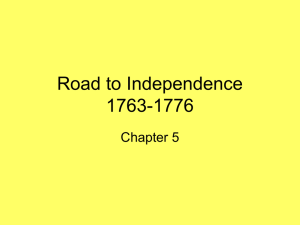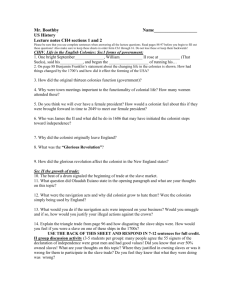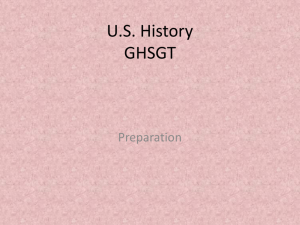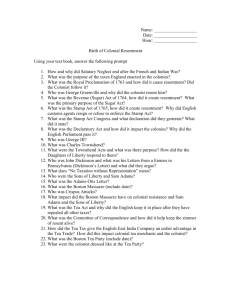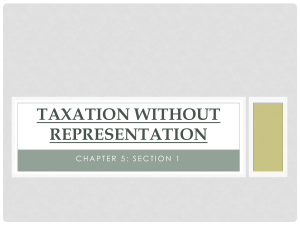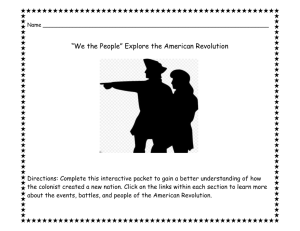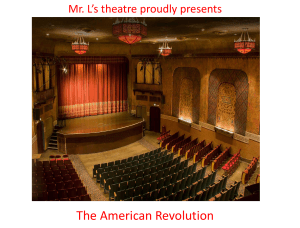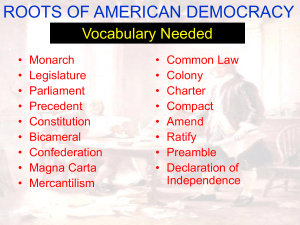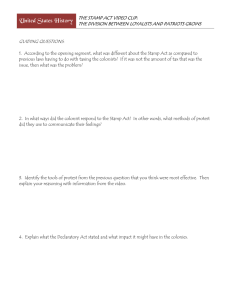Taxation - Skyline R2 School
advertisement
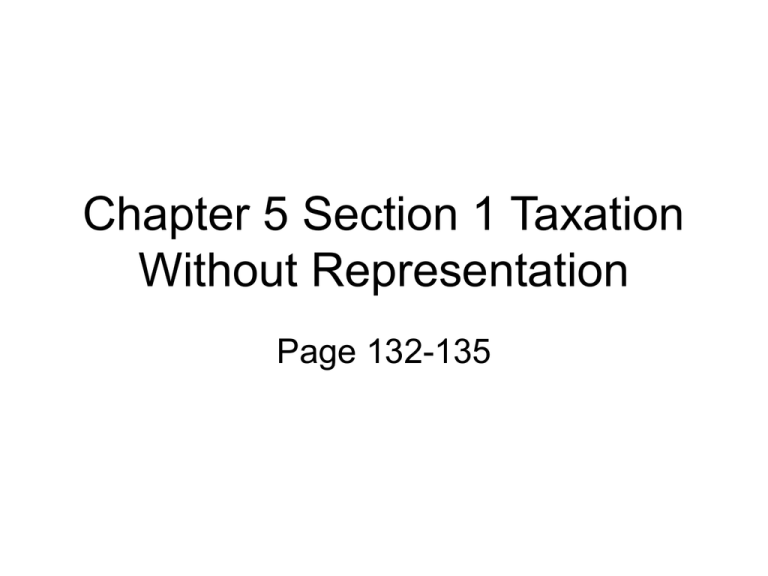
Chapter 5 Section 1 Taxation Without Representation Page 132-135 Objectives • Students will learn why the British faced problems in N. America after the French and Indian War. • Why Americans objected to the new British laws. I. Relations with Britain A. The Proclamation of 1763. 1. To limit the westward movement. Thus the British controlled the movement. 2. Keep peace with the Natives. 3. Keep people in the east to use British goods and spend money there making revenue for the English with taxes. 4.10,000 Redcoats stayed in Colonies to protect the British interest. B. Britain's Trade Laws 1. George Greenville 1763 became the new Prime Minster. 2. He wanted to stop smuggling and Parliament passed the “writs of assistance,” 1767, which allowed searches anywhere they wanted to look for smuggled goods. 3. Smugglers would no longer be tried by Colonial jury (in which they usually get off free) and they were tried in Vice-admiralty courts. (British officers) C. The Sugar Act 1. 1764 the tax on molasses imported to the colonist was lowered to convince people to pay the tax and not smugglers. This also let officers seize goods without going to court. 2. Colonist were angered because the innocence of the smugglers was theirs to prove. Before you were innocent until proven guilty. 3. A leader of this “innocent until proven guilty” campaign was Boston lawyer James Otis. II. The Stamp Act A. Stamp Act 1765 1. Stamp Act placed a paper tax on everything from playing cards to newspapers, even pamphlets and wills. 2. Opposition centered on two points. a. Parliament taxed colonist directly. b. They had no one in Parliament to represent them. B. Protesting the Stamp Act 1. Patrick Henry of the Virginia House of Burgesses decide to take action against the Stamp Act. 2. He was accused of treason, and he told them, “If this be treason, make the most of it.” 3.The Virginia assembly passed a resolution (formal expression of opinion) that they had, “the only and sole exclusive right and power to lay taxes” on its citizens. 4. Samuel Adams organized the “Sons of Liberty” to protest the act; they burned effigies (rag figures) of tax collectors and marched through the streets.1765 C. The Stamp Act Congress 1. Delegates from 9 Colonies met in New York and declared they only had the right to tax Colonist. 2. They urged merchants to boycott (refuse to buy) British goods. Thousands of shops, farmers, artisans signed nonimportation agreements. 3. The British lost money and begged Parliament to repeal (cancel) the act. D. The Act is Repealed 1. 1766 the Act is repealed but on the same day Parliament passed the “Declaratory Act,” that stated Parliament had the right to tax and make all the decisions for the colonist. 2. The colonist didn’t gain much and their angered feelings were still felt. III. New Taxes A. 1767 The Townsend Acts 1. Parliament knew that internal taxes would only anger large numbers of colonist. They decided to tax stuff at the ports of entry. 2. These were on basic goods like glass, tea, paper, and lead. 3. Colonist were outraged by any taxes and wanted their own representatives. 4. They started the boycott and changed the look of Americans by the women. 5. The Daughters of Liberty started to make their own clothes and people produced American products.
